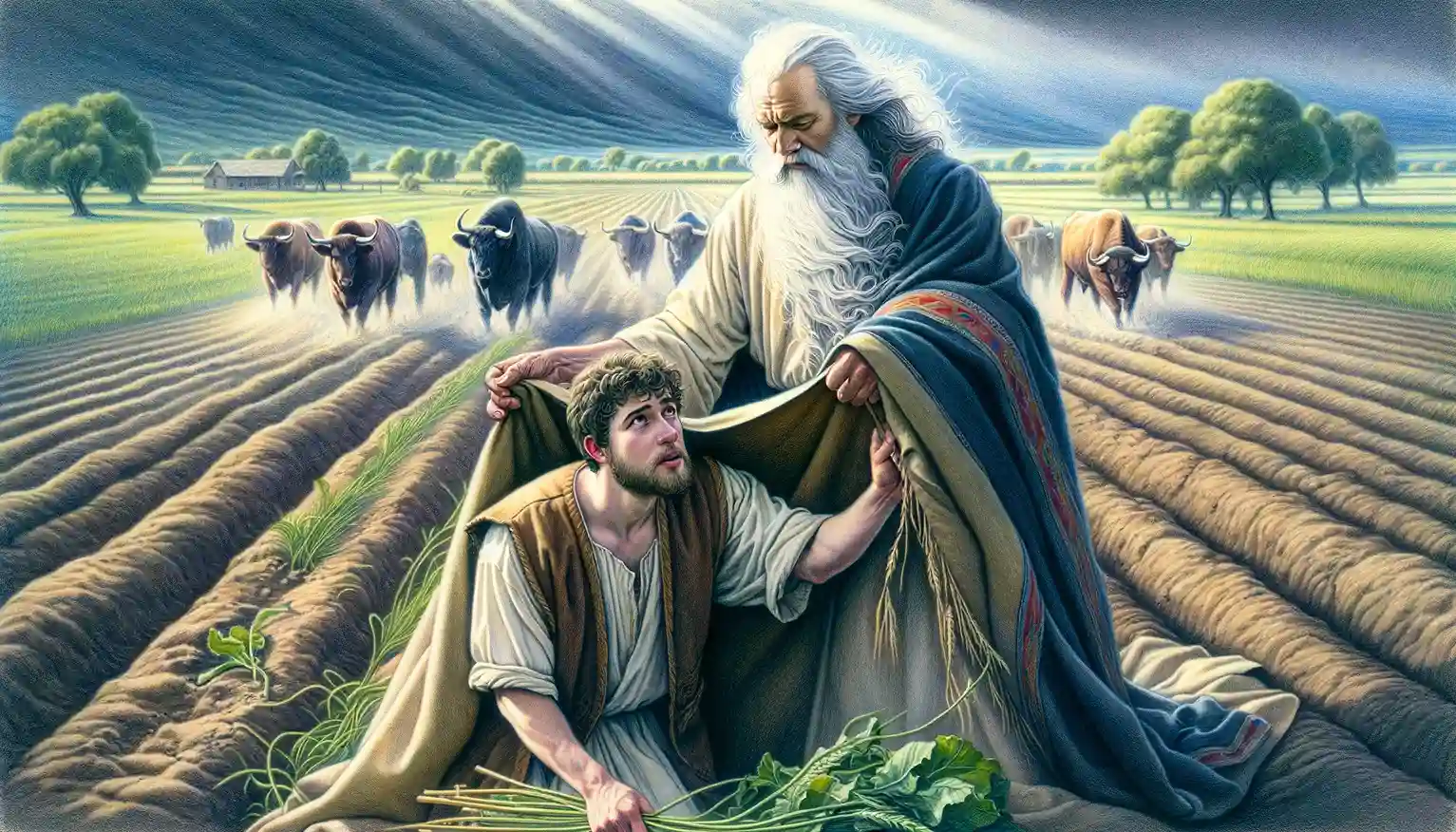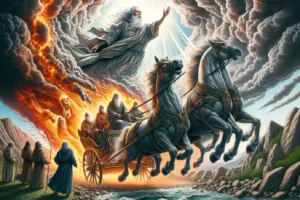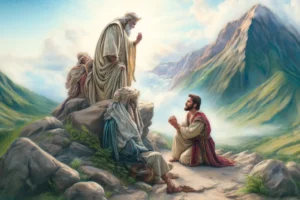
Elijah Choosing Elisha as His Successor
The calling of Elisha by Elijah to be his successor is a key moment in the biblical narrative of prophetic leadership. Here are some quick facts about this event from 1 Kings 19:19-21:
- Biblical Reference: The event is detailed in 1 Kings 19:19-21.
- Elijah’s Call: Elijah finds Elisha plowing in the fields with twelve yoke of oxen. He approaches Elisha and throws his mantle (cloak) over him, symbolizing the transfer of his prophetic calling.
- Elisha’s Response: Elisha responds immediately to Elijah’s call, asking only to say goodbye to his parents before he follows Elijah. This response signifies his readiness and commitment to the prophetic mission.
- Symbolic Gesture: The act of throwing the mantle over Elisha is significant as it represents the passing of authority and prophetic power from Elijah to Elisha.
- Sacrificial Commitment: Elisha slaughters the oxen he was using to plow and uses the plowing equipment to cook the meat, which he then shares with his people. This act symbolizes his total departure from his former life and his full commitment to his new role as a prophet.
- Continuation of Ministry: Elisha’s calling ensures the continuation of Elijah’s prophetic mission, emphasizing the importance of mentorship and succession in maintaining the prophetic voice in Israel.
The calling of Elisha by Elijah, as described in 1 Kings 19:19-21, is a pivotal event that illustrates the transition of prophetic authority and the continuation of a divine mission. This episode is rich in symbolism and reflects deep themes of commitment, mentorship, and the legacy of spiritual leadership. Here’s a comprehensive analysis of this significant biblical event:
Context and Setting
After receiving instructions from God on Mount Horeb, including anointing Hazael and Jehu, Elijah is also commanded to appoint Elisha as his prophetic successor. This directive comes at a time when Elijah might have felt isolated and burdened by his prophetic responsibilities, making the need for a successor both practical and spiritually essential.
The Call of Elisha
Elijah encounters Elisha son of Shaphat as he is plowing with twelve yoke of oxen, indicating that Elisha is from a well-to-do family capable of significant agricultural operations. Elijah’s approach is simple yet profound: he places his mantle on Elisha, a gesture rich in symbolic meaning. The mantle represents the authority and spirit of Elijah’s prophetic office, and by placing it on Elisha, Elijah is effectively designating him as the next bearer of that spiritual legacy.
Elisha’s Response
Elisha’s response to Elijah’s call is immediate and decisive. He asks for permission to kiss his parents goodbye, indicating his respect for his family ties, but also making clear his commitment to his new calling by not even entering his house. Elisha’s subsequent actions—slaughtering the oxen and using the equipment to cook the meat for a feast—symbolize a complete and irreversible break from his past. He sacrifices his livelihood and the tools of his trade to follow Elijah, reflecting a total commitment to the prophetic mission.
Symbolism and Theological Implications
- Mantle as Symbol: The mantle not only signifies the transfer of prophetic authority but also represents the passing on of God’s spirit that empowers the prophet. This continuity is crucial for the preservation of the prophetic voice within Israel.
- Sacrificial Commitment: Elisha’s sacrifice of his oxen demonstrates his total dedication to God’s call. This act mirrors the biblical theme of sacrifice as a necessary part of spiritual dedication and service.
- Legacy and Mentorship: Elijah’s act of calling Elisha underscores the importance of mentorship and legacy within the spiritual life of Israel. Prophetic ministry is not just about the individual prophet but about a continuing line of communication from God to His people, which must be preserved across generations.
Conclusion
The calling of Elisha by Elijah not only ensures the continuation of Elijah’s mission but also reinforces the importance of discipleship and mentorship in the biblical prophetic tradition. This event is emblematic of the broader biblical narrative, where the calling of God often requires leaving behind the old to embrace a new mission, marked by both personal sacrifice and divine empowerment. The story of Elisha’s call thus serves as a powerful example of the cost and commitment required in the service of God and the community of faith.



